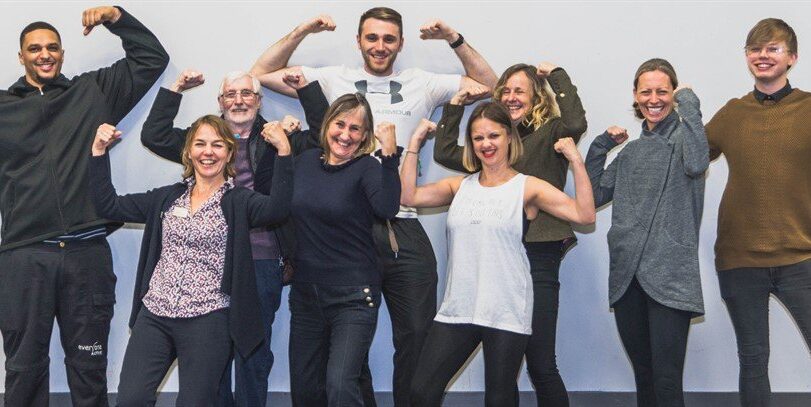We know that being physically active improves people’s quality of life, but we don’t know if following a structured programme can help bowel cancer and IBD patients with their concerns related to living with a stoma.
This study is happening in London and the Scottish Highlands. About six weeks after stoma-creating surgery, patients receive weekly physical activity consultations face-to-face with a physical activity specialist at a leisure centre/at home or by video-conferencing (e.g. skype), for a total of 12 weeks.
The researchers are finding out:
- How many patients participate and what physical activities they do each week
- Patients’, stoma nurses’, and physical activity specialists’ opinions about the physical activity programme
- If there are improvements in quality of life, function, fatigue and body image
Meet the team
The project is being led by Dr Gill Hubbard from the University of the Highlands and Islands with Dr Claire Taylor, Professor Angus Watson and Dr Becca Beeken.

Guidance for professionals around physical activity for patients with a stoma
A key outcome from the study was, in association with patients, for the team to produce a guidance document for professionals delivering physical activity interventions for people with a stoma. You can download the guidance here:
Exercising with a stoma manual for PA professionals
Why develop physical activity for patients with a stoma?
Every year in the UK It is estimated that around 13,000 people undergo stoma surgery. One reason for a stoma is as part of the surgical treatment for bowel cancer. Each year 77% of patients (around 3,000) undergoing anterior resection for rectal cancer will have a defunctioning or end stoma formed and 27% will still have a stoma at 18 months follow-up. Additionally each year, there around 2,000 IBD patients who can no longer bear the symptoms of their disease or are no longer responding to their prescribed medication, who will have surgery resulting in either temporary or permanent stoma formation.
People with a stoma report fatigue, feeling unattractive, low energy, fear of appliance leakage and fear of a hernia, all of which greatly impact their quality of life. Reversal and closure surgery is not advisable for some patients nor is it necessarily a solution for poor quality of life. It is therefore crucial that interventions to address poor quality of life in relation to people who live with a stoma are established.
There is strong evidence that physical activity improves the quality of life in patients with cancer or IBD. Patients with a stoma are less likely to participate in physical activity programmes than those without a stoma and having a stoma has a negative impact on participation in sports and leisure activities.
A key gap in evidence is the effectiveness of a physical activity programme that has been specifically designed to address stoma related barriers to physical activity.
